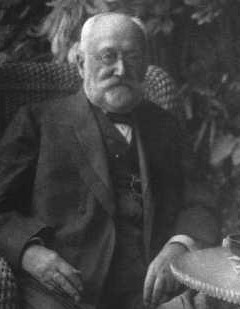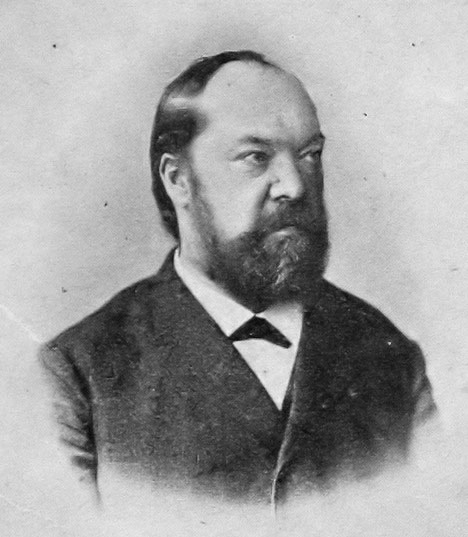|
Kreis Samter
Kreis Samter ( pl, Powiat szamotulski) was a district in Regierungsbezirk Posen, in the Prussian Province of Posen from 1818 to 1918. Its territory presently lies in the north-western part of Polish region of Greater Poland Voivodeship. History The Samter district was formed on January 1, 1818, with its capital at Samter. As part of the Province of Posen, the Samter district became part of the newly founded German Empire on January 18, 1871. On December 27, 1918, the Greater Poland uprising began in the province of Posen, and on the same day the district town of Samter came under Polish control. On February 16, 1919, an armistice ended the Polish-German fighting, and on June 28, 1919, the German government officially ceded the Samter district to the newly founded Poland with the signing of the Treaty of Versailles. Elections In the German Empire, the district of Samter, together with the districts of Birnbaum, Obornik and Schwerin belonged to the ''Posen 2'' Reichstag c ... [...More Info...] [...Related Items...] OR: [Wikipedia] [Google] [Baidu] |
Province Posen Divisions Samter
A province is almost always an administrative division within a country or state. The term derives from the ancient Roman ''provincia'', which was the major territorial and administrative unit of the Roman Empire's territorial possessions outside Italy. The term ''province'' has since been adopted by many countries. In some countries with no actual provinces, "the provinces" is a metaphorical term meaning "outside the capital city". While some provinces were produced artificially by colonial powers, others were formed around local groups with their own ethnic identities. Many have their own powers independent of central or federal authority, especially in Canada and Pakistan. In other countries, like China or France, provinces are the creation of central government, with very little autonomy. Etymology The English word ''province'' is attested since about 1330 and derives from the 13th-century Old French , which itself comes from the Latin word , which referred to the sphere ... [...More Info...] [...Related Items...] OR: [Wikipedia] [Google] [Baidu] |
National Liberal Party (Germany)
The National Liberal Party (german: Nationalliberale Partei, NLP) was a liberal party of the North German Confederation and the German Empire which flourished between 1867 and 1918. During the Prussian-led unification of Germany, the National Liberals became the dominant party in the Reichstag parliament. While supporting the common ideals of liberalism and nationalism, the party contained two wings which reflected the conflicting claims of its Hegelian and idealistic heritage: one which emphasized the power of the state through the ''Nationalstaat'', and the other which emphasized the civil liberties of the ''Rechtsstaat''. Although this cleavage later proved fatal for its unity, the National Liberals managed to remain the pivotal party in the decades after unification by cooperating with both the Progressives and the Free Conservatives on various issues. Origins A first national liberal parliamentary group arose among right-wing deputies of the liberal German Progress Party ... [...More Info...] [...Related Items...] OR: [Wikipedia] [Google] [Baidu] |
1912 German Federal Election
Federal elections were held in Germany on 12 January 1912.Dieter Nohlen & Philip Stöver (2010) ''Elections in Europe: A data handbook'', p762 Although the Social Democratic Party (SPD) had received the most votes in every election since 1890, it had never won the most seats, and in the 1907 elections, it had won fewer than half the seats won by the Centre Party despite receiving over a million more votes. However, the 1912 elections saw the SPD retain its position as the most voted-for party and become the largest party in the Reichstag, winning 110 of the 397 seats. Parties hostile or ambivalent to the ruling elites of the German Empire – the Social Democrats, the Centre Party, and the left-liberal Progressives – together won a majority of the seats. This allowed a successful vote of no confidence in the government of Theobald von Bethmann Hollweg over the Saverne Affair in 1913 and the Reichstag Peace Resolution of 1917. However, the Centre and the Progressives were unwi ... [...More Info...] [...Related Items...] OR: [Wikipedia] [Google] [Baidu] |
1907 German Federal Election
Federal elections were held in Germany on 25 January 1907.Dieter Nohlen & Philip Stöver (2010) ''Elections in Europe: A data handbook'', p762 Despite the Social Democratic Party (SPD) receiving a clear plurality of votes, they were hampered by the unequal constituency sizes that favoured rural seats. As a result, the Centre Party remained the largest party in the Reichstag after winning 101 of the 397 seats, whilst the SPD won only 43.Nohlen & Stöver, p789 Voter turnout was 84.7%.Nohlen & Stöver, p775 This election was known as the "'' Hottentot Election''" due to the scandal over the ongoing genocide of the Khoisan people in German South West Africa. Results Alsace-Lorraine References {{German elections Federal elections in Germany Germany Germany,, officially the Federal Republic of Germany, is a country in Central Europe. It is the second most populous country in Europe after Russia, and the most populous member state of the European Union. G ... [...More Info...] [...Related Items...] OR: [Wikipedia] [Google] [Baidu] |
1903 German Federal Election
Federal elections were held in Germany on 16 June 1903. Dieter Nohlen & Philip Stöver (2010) ''Elections in Europe: A data handbook'', p762 Despite the Social Democratic Party (SPD) receiving a clear plurality of votes, the Centre Party remained the largest party in the Reichstag after winning 100 of the 397 seats, whilst the SPD won only 81. Voter turnout was 76.1%.Nohlen & Stöver, p775 Results Alsace-Lorraine References {{German elections Federal elections in Germany 1903 elections in Germany Germany Germany,, officially the Federal Republic of Germany, is a country in Central Europe. It is the second most populous country in Europe after Russia, and the most populous member state of the European Union. Germany is situated betwe ... Elections in the German Empire June 1903 events ... [...More Info...] [...Related Items...] OR: [Wikipedia] [Google] [Baidu] |
1898 German Federal Election
Federal elections were held in Germany on 16 June 1898. Dieter Nohlen & Philip Stöver (2010) ''Elections in Europe: A data handbook'', p762 Despite the Social Democratic Party (SPD) receiving the most votes, the Centre Party remained the largest party in the Reichstag after winning 102 of the 397 seats, whilst the SPD won just 56. Voter turnout was 68.1%.Nohlen & Stöver, p774 Results Alsace-Lorraine References {{German elections Federal elections in Germany Elections in the German Empire Germany Germany,, officially the Federal Republic of Germany, is a country in Central Europe. It is the second most populous country in Europe after Russia, and the most populous member state of the European Union. Germany is situated betwe ... 1898 elections in Germany June 1898 events ... [...More Info...] [...Related Items...] OR: [Wikipedia] [Google] [Baidu] |
1893 German Federal Election
Federal elections were held in Germany on 15 June 1893.Dieter Nohlen & Philip Stöver (2010) ''Elections in Europe: A data handbook'', p762 Despite the Social Democratic Party (SPD) receiving a plurality of votes, the Centre Party remained the largest party in the Reichstag after winning 96 of the 397 seats, whilst the SPD won just 44.Nohlen & Stöver, p789 Voter turnout was 72.4%.Nohlen & Stöver, p774 Results Alsace-Lorraine References {{German elections Federal elections in Germany Germany Germany,, officially the Federal Republic of Germany, is a country in Central Europe. It is the second most populous country in Europe after Russia, and the most populous member state of the European Union. Germany is situated betwe ... 1893 elections in Germany Elections in the German Empire June 1893 events ... [...More Info...] [...Related Items...] OR: [Wikipedia] [Google] [Baidu] |
1890 German Federal Election
Federal elections were held in Germany on 20 February 1890.Dieter Nohlen & Philip Stöver (2010) ''Elections in Europe: A data handbook'', p762 The Centre Party regained its position as the largest party in the Reichstag by winning 107 of the 397 seats, whilst the National Liberal Party, formerly the largest party, was reduced to 38 seats. Contemporaries remarked on the striking increase in the vote share of the Social Democratic Party. However, despite receiving the most votes, the Social Democratic Party won only 35 seats. Voter turnout was 71.5%.Nohlen & Stöver, p774 Results Alsace-Lorraine References {{German elections Federal elections in Germany Germany Germany,, officially the Federal Republic of Germany, is a country in Central Europe. It is the second most populous country in Europe after Russia, and the most populous member state of the European Union. Germany is situated betwe ... 1890 elections in Germany Elections in the German Empi ... [...More Info...] [...Related Items...] OR: [Wikipedia] [Google] [Baidu] |
1887 German Federal Election
Federal elections were held in Germany on 21 February 1887.Dieter Nohlen & Philip Stöver (2010) ''Elections in Europe: A data handbook'', p762 The National Liberal Party became the largest party in the Reichstag by winning 98 of the 397 seats, whilst the Centre Party, formerly the largest party, was reduced to 98 seats. Voter turnout was 77.5%.Nohlen & Stöver, p774 Results Alsace-Lorraine References {{German elections Federal elections in Germany Germany Germany,, officially the Federal Republic of Germany, is a country in Central Europe. It is the second most populous country in Europe after Russia, and the most populous member state of the European Union. Germany is situated betwe ... 1887 elections in Germany Elections in the German Empire February 1887 events ... [...More Info...] [...Related Items...] OR: [Wikipedia] [Google] [Baidu] |
1884 German Federal Election
Federal elections were held in Germany on 28 October 1884.Dieter Nohlen & Philip Stöver (2010) ''Elections in Europe: A data handbook'', p762 The Centre Party remained the largest party in the Reichstag, with 99 of the 397 seats. Voter turnout was 60.5%.Nohlen & Stöver, p773 Results Alsace-Lorraine References {{German elections Federal elections in Germany Germany Germany,, officially the Federal Republic of Germany, is a country in Central Europe. It is the second most populous country in Europe after Russia, and the most populous member state of the European Union. Germany is situated betwe ... 1884 elections in Germany Elections in the German Empire October 1884 events ... [...More Info...] [...Related Items...] OR: [Wikipedia] [Google] [Baidu] |
1881 German Federal Election
Federal elections were held in Germany on 27 October 1881.Dieter Nohlen & Philip Stöver (2010) ''Elections in Europe: A data handbook'', p762 The Centre Party became the largest party in the Reichstag, with 100 of the 397 seats, whilst the National Liberal Party, which had previously been the largest party, was reduced to 45 seats. Voter turnout was 56.3%.Nohlen & Stöver, p773 Results Alsace-Lorraine References {{German elections Federal elections in Germany Germany Germany,, officially the Federal Republic of Germany, is a country in Central Europe. It is the second most populous country in Europe after Russia, and the most populous member state of the European Union. Germany is situated betwe ... 1881 elections in Germany Elections in the German Empire October 1881 events ... [...More Info...] [...Related Items...] OR: [Wikipedia] [Google] [Baidu] |
1878 German Federal Election
Federal elections were held in Germany on 30 July 1878.Dieter Nohlen & Philip Stöver (2010) ''Elections in Europe: A data handbook'', p762 The National Liberal Party remained the largest party in the Reichstag, with 97 of the 397 seats. Voter turnout was 63.4%.Nohlen & Stöver, p773 Results Alsace-Lorraine References {{Authority control Federal elections in Germany Germany Germany,, officially the Federal Republic of Germany, is a country in Central Europe. It is the second most populous country in Europe after Russia, and the most populous member state of the European Union. Germany is situated betwe ... 1878 elections in Germany Elections in the German Empire July 1878 events ... [...More Info...] [...Related Items...] OR: [Wikipedia] [Google] [Baidu] |








